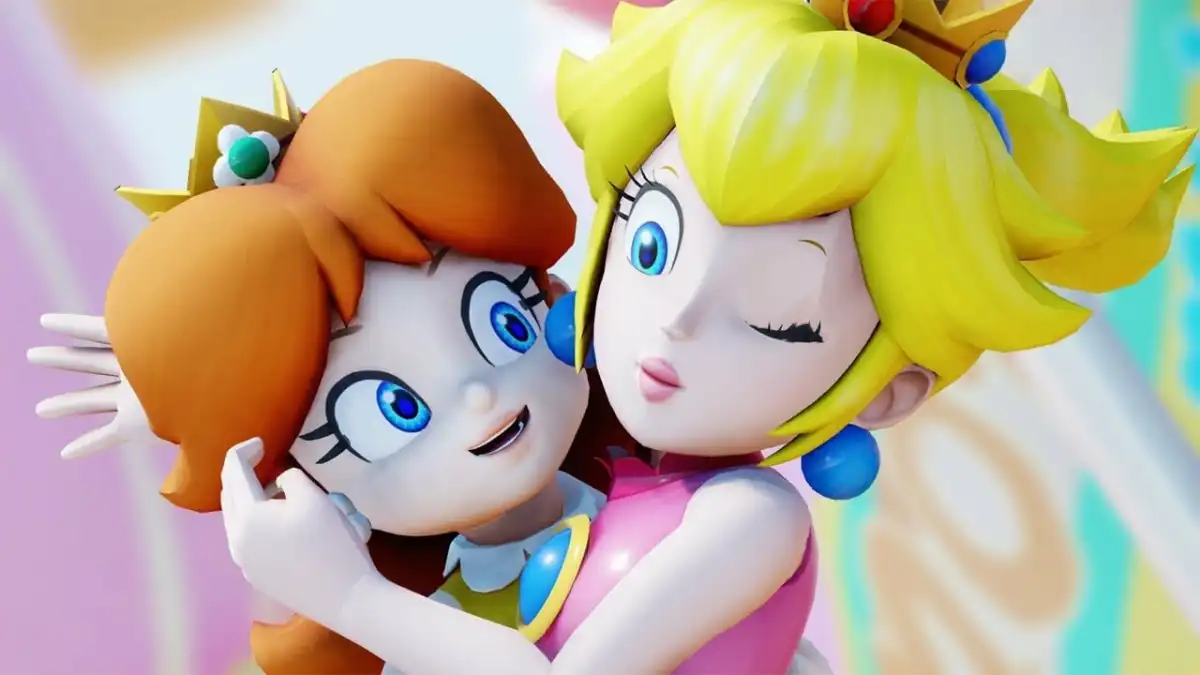Japan’s been going through a rough news summer. One of the stories that may have flown under the radar in the U.S. is that, on June 20, the Osaka District Court ruled that Japan’s current ban on same-sex marriage was constitutional, because they believed the constitution’s “freedom of marriage” only applied to heterosexual couples. What makes this especially crushing is that a court based in Sapporo ruled the opposite way in 2021.
As Amnesty International points out, Japan’s national government has yet to introduce any kind of legislation to ensure LGBTQIA rights. Progressive Americans know that feeling of “lack of federal intervention” all too well. However, one very prominent Japanese businessman is standing tall as an ally: Mario.
Last week, Nintendo Japan issued an update to its Corporate Social Responsibility information, in which they highlighted a pretty major change: the introduction of a “Partnership System.” You can read the full announcement on Nintendo’s website, but here are the highlights:
Although same-sex marriages are not currently recognized under Japanese law, this system ensures employees who are in a domestic partnership with a same-sex partner have the same benefits as employees in an opposite-sex marriage. We have also established that a common-law marriage between couples will be observed in the same way as a legal marriage.
… In addition to introducing the Partnership System, we revised our internal regulations regarding harassment to clearly prohibit discriminatory comments based on sexual orientation or gender identity, as well as disclosing someone’s privately held sexual orientation against their will.
Alongside the introduction of the Partnership System in Japan, we notified our employees about the issue of gender diversity with a message from our President as a means of raising awareness of what diversity means. In this message, the President called for all employees to adopt a renewed understanding that even speech and actions, which are not intended to harm, can cause significant emotional pain, asking for understanding and support to create an environment in which everyone can work comfortably.
By improving our company systems and conducting training, we will continue our work to create an environment where each of our many diverse employees can fully realize their talents.
One of the many things I enjoy about this is that there’s a rare understanding from a corporate entity that your workers do their best work when they feel comfortable and safe—and that feeling “comfortable and safe” not only means getting equal rights, but having protection from harassment, and having what can be designated as harassment include disclosing private information. Having the Boss come in and tell every employee that they might have to rethink some biases is rather nice, as well.
What gets me about this story is that the actual policy change behind this announcement was made back in March 2021. They didn’t really make a big thing about it until now—and it was probably the Osaka court’s decision that made them want to highlight it, which, in my opinion, kind of makes it more badass.
This, of course, isn’t to say Nintendo is an infallible human rights champion, but to be honest, I’m just relieved that the company that supplies one of my favorite things is actually on the good side of this debate—and is actually throwing real weight behind their stance within their own (mushroom) kingdom.
Japan’s Relationship With Its LGBTQIA Community
Meanwhile, as for the state of marriage equality in Japan as a whole: polling in recent years has shown that around 65% of the Japanese public supports marriage equality, with 30% actively in opposition. Like U.S. states in a pre-Obergefell v. Hodges America (goddamn, I hope no “post-Obergefell” is on the horizon), 11 Japanese prefectures will offer a “partnership certification system,” which offers some limited rights to same-sex couples, by the end of 2022. These include prefectures with major cities, like Tokyo. In addition, a truly dizzying number of municipalities also offer certification to residents.
There’s an absolutely phenomenal article on Tofugu, courtesy of Cameron Lombardo, about LGBTQIA terminology in Japan, the country’s history with the LGBTQIA community, and what it’s like to come out. I highly recommend you read it. But, suffice it to say, there’s huge differences between Japan and here—because in the U.S., we associate anti-LGBTQIA sentiment with outright violence and vocal hostility. While some violence unfortunately does still occur, Lombardo writes, “There is very little open hostility towards queer people in Japan, which some say is a reason that progress has been slow.”
A large part of the reason for this is that, in pre-modern Japan, pansexuality was normalized: “sexuality was understood as something you do, not something you are.” (Although, Lombardo notes, “while it was a time of sexual liberation, that did not translate into gender equality.” That’s a sticky topic for another day.) This has translated in the modern day to the fact that “relative tolerance of gender non-conforming people means that there has been very little aggressive persecution of queer people in Japan.”
So, in a phrase, it’s very complicated. Hopefully, the Osaka court’s ruling will spur any LGBTQIA allies to … you know … do something. In the meantime, I’m sure glad Mario’s taking action within his own domain.
(featured image: Nintendo)










Published: Jul 20, 2022 12:40 pm